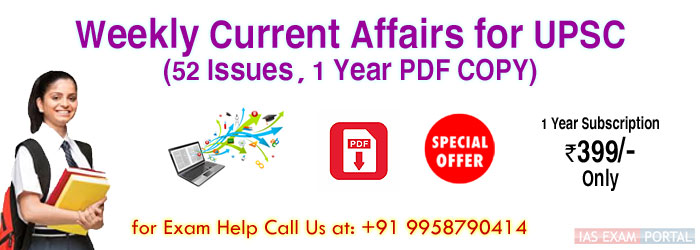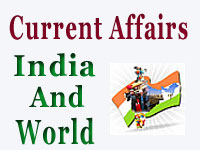-
India has produced a legacy of brave hearts since times
immemorial. Probably there is not enough space to measure their sacrifices.
However, we cannot close our eyes to those people who have made our country
proud by excelling in their own fields and bringing us international
recognition. Bharat Ratna is the highest civilian award, given for
exceptional service towards advancement of Art, Literature and Science, and
in recognition of Public Service of the highest order. It is also not
mandatory that Bharat Ratna be awarded every year.
-
The original specifications for the award called for a
circular gold medal, 35 mm in diameter, with the sun and the Hindi legend "Bharat
Ratna" above and a floral wreath below. The reverse was to carry the state
emblem and motto. It was to be worn around the neck from a white ribbon.
This design was altered after a year.
-
The provision of Bharat Ratna was introduced in 1954. The
first ever Indian to receive this award was the famous scientist,
Chandrasekhara Venkata Raman. Since then, many dignitaries, each a whiz in
varied aspects of their career has received this coveted award.
-
In fact, our former President, Shri A. P. J Abdul Kalam
is also a recipient of this esteemed honour (1997). There is no written
provision that Bharat Ratna should be awarded to Indian citizens only. The
award has been awarded to a naturalized Indian citizen, Agnes Gonxha
Bojaxhiu, better known as Mother Teresa (1980) and to two non-Indians - Khan
Abdul Ghaffar Khan and Nelson Mandela (1990).
-
In 2009, the award was conferred on famous Indian
vocalist Pandit Bhimsen Gururaj Joshi. Recently, the PMO has decided to
confer the award on eminent scientist Prof C.N.R. Rao and cricket legend
Sachin Tendulkar.
1. Shri Chakravarti Rajagopalachari in 1954
2. Dr. Sarvapali Radhakrishnan in 1954
3. Dr. Chandrasekhara Venkata Raman in 1954
4. Dr. Bhagwan Das in 1955
5. Dr. Mokshagundam Visvesvaraya in 1955
6. Pt. Jawaharlal Nehru in 1955
7. Pt. Govind Ballabh Pant in 1957
8. Dr. Dhondo Keshave Karve in 1958
9. Dr. Bidhan Chandra Roy in 1961
10. Shri Purushottam Das Tandon in 1961
11. Dr. Rajendra Prasad in 1962
12. Dr. Zakir Hussain in 1963
13. Dr. Pandurang Vaman Kane in 1963
14. Shri Lal Bahadur Shastri (Posthumous) in 1966
15. Smt. Indira Gandhi in 1971
-
The Prime Minister of Japan, H.E. Shinzo Abe was on an
official visit to India on 25-27 January 2014 at the invitation of the Prime
Minister of India, H.E. Dr. Manmohan Singh as chief guest at India’s
Republic Day celebrations. The two Prime Ministers held extensive talks
during their Annual Summit on bilateral, regional and global issues on 25
January 2014 in Delhi.
-
The two Prime Ministers welcomed that the State Visit of
Their Majesties the Emperor and Empress of Japan to India from 30 November
to 6 December 2013 further strengthened the long-lasting historically close
ties and friendship between the peoples of India and Japan.
-
The two Prime Ministers reaffirmed their resolve to
further deepen the Strategic and Global Partnership between India and Japan
as two democracies in Asia sharing universal values such as freedom,
democracy and rule of law, and to contribute jointly to the peace, stability
and prosperity of the region and the world, taking into account changes in
the strategic environment.
-
Prime Minister Abe elaborated his policy of "Proactive
Contribution to Peace”. Prime Minister Singh appreciated Japan’s efforts to
contribute to peace and stability of the region and the world.
-
Welcoming the successful outcome of the visit by Defense
Minister Itsunori Onodera to India, the two Prime Ministers reaffirmed their
determination to further strengthen bilateral defense cooperation. In this
connection, they welcomed the decision of the two defense ministers to
realize the visit of Indian Defense Minister to Japan within 2014. They also
expressed satisfaction that the Trilateral Dialogue between India, Japan and
the US has been held on a regular basis and also that the 3rd two plus two
dialogue and the 4th Defense Policy Dialogue are to be held before the end
of the year. They confirmed to hold the 2nd meeting of India-Japan Bilateral
Talks on Cyber-affairs in spring 2014 with a view to further exploring
possible areas of cooperation.
-
The two Prime Ministers welcomed the successful conduct
of the second bilateral exercise between the Indian Navy (IN) and the Japan
Maritime Self-Defense Force (JMSDF) in December 2013 off the coast of
Chennai and shared their intention to conduct the joint exercise in the
Pacific Ocean in 2014. They reaffirmed the importance of such exercises, and
renewed their resolution to continue to conduct them on a regular basis with
increased frequency. Prime Minister Abe appreciated India’s invitation to
JMSDF for the next "Malabar” maritime exercise.
-
The two Prime Ministers expressed satisfaction with the
holding of the 1st meeting of the Joint Working Group (JWG) on the US-2
amphibian aircraft in December 2013 in Delhi and welcomed the 2nd meeting of
the JWG which is scheduled for March 2014 in Japan.
-
Welcoming the expansion of the bilateral currency swap
arrangement from 15 to 50 billion US dollars and signing of the contract for
its entry into force in January 2014, the two Prime Ministers expressed
their expectation that this expansion will further strengthen financial
cooperation and contribute to the stability of global financial markets
including emerging economies.
-
Prime Minister Singh appreciated the relaxation of
Maximum Residue Levels (MRL) of Ethoxyquin on the shrimps imported to Japan
to 0.2ppm by the Ministry of Health, Labour and Welfare of Japan.
-
The two Prime Ministers reaffirmed the importance of
investment for driving economic growth and job creation in their economies
and ways to create enabling environments to mobilize investment and give a
fillip to economic relations. They agreed to continue working towards a
greater understanding of all financial and taxation related issues including
Indian rupee denominated finance by JBIC and establishing a consultative
mechanism between the two countries. They appreciated JETRO's business
matching activities to strengthen business partnership and consolidate
supply chains between the two countries. They expressed their expectation
for introducing Japanese technologies and expanding investment through the
implementation of "the Action Plan for India-Japan Investment Promotion”
agreed between the Minister of Commerce and Industry of India and the
Minister of Economy, Trade and Industry of Japan in September 2013.
-
Welcoming that the Comprehensive Economic Partnership
Agreement (CEPA) has deepened the bilateral economic relations, the two
Prime Ministers expressed their expectation that both countries would
continue to work closely to further expand trade in goods and services as
well as investments.
-
The two Prime Ministers appreciated that both countries
have signed the Memorandum of Cooperation (MOC) between the Bureau of Indian
Standards (BIS) and Japanese Industrial Standards Committee (JISC). They
expressed their hope to strengthen their cooperative relationship in this
field further in order to facilitate trade and to harmonize activities
within international standardization and conformity assessment.
-
The two sides welcomed the outcomes of the first
India-Japan Joint Working Group on IT and Electronics held in New Delhi by
the Ministry of Communication and Information Technology of India and the
Ministry of Economy, Trade and Industry of Japan. The two Prime Ministers
expressed their hope for the cooperation being further developed between IT
and electronics industries of both countries through the framework. They
expressed their intention to explore the proposal for setting up of Japanese
Electronics Industrial Township in India. Both sides also expressed
satisfaction with the ongoing cyber security dialogue between the CERT-In
and JPCERT, Japan and emphasized further collaborative and proactive
response against cyber-attacks at international level.
-
The two Prime Ministers appreciated the progress of
zoning and planning of National Investment Manufacturing Zones (NIMZs)
stipulated in National Manufacturing Policy (NMP) of India. They expressed
their expectation for investment by Japanese companies in NIMZs in general
and in India-Japan joint projects such as the Delhi-Mumbai Industrial
Corridor (DMIC) and the Chennai-Bengaluru Industrial Corridor (CBIC) in
particular.
-
The two Prime Ministers reaffirmed their shared
commitment to the total elimination of nuclear weapons. Prime Minister Abe
stressed the importance of bringing into force the Comprehensive
Nuclear-Test-Ban Treaty (CTBT) at an early date. Prime Minister Singh
reiterated India’s commitment to its unilateral and voluntary moratorium on
nuclear explosive testing. They also reaffirmed their commitment to working
together for immediate commencement and an early conclusion of negotiations
on a non-discriminatory, multilateral and internationally and effectively
verifiable Fissile Material Cut-off Treaty (FMCT). Both sides expressed
their commitment to work together for India to become a full member in the
international export control regimes: the Nuclear Suppliers Group, the
Missile Technology Control Regime, the Australia Group and the Wassenaar
Arrangement, with the aim of strengthening the international
non-proliferation efforts.
-
The two Prime Ministers acknowledged that there is a high
potential to be explored in the area of people-to-people exchanges between
India and Japan and expressed their intention to make utmost effort for the
expansion of exchange of peoples in various fields.
-
The two Prime Ministers welcomed Japan’s participation as
a partner country in the India International Trade Fair in Delhi and the
International Film Festival of India 2013 in Goa. They also expressed their
expectation to enhance cooperation between the two countries on development
of human resources, and matching activities in the area of content industry.










